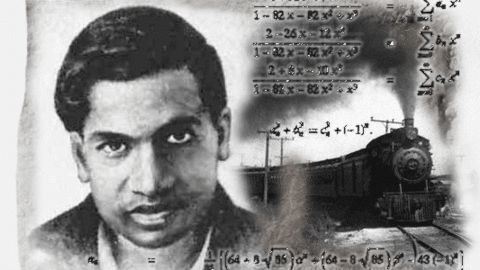India marks Srinivasa Ramanujan's birth anniversary on December 22 as National Mathematics Day.
Math is an essential part of any student's life. But for many, it's a source of overwhelming fear: they dread the class, they loathe the teacher, the sight of the textbook makes them cringe.
Do you know there's an actual phenomenon called 'math anxiety'? And can you do something about it?

National Mathematics Day: Know how to deal with math anxiety
India marks Srinivasa Ramanujan's birth anniversary on December 22 as National Mathematics Day.
Math is an essential part of any student's life. But for many, it's a source of overwhelming fear: they dread the class, they loathe the teacher, the sight of the textbook makes them cringe.
Do you know there's an actual phenomenon called 'math anxiety'? And can you do something about it?
AnxietyYes, math anxiety is an actual psychological condition
Mark H. Ashcraft defined math anxiety as "a feeling of tension, apprehension or fear that interferes with math performance".
Research has proven strong relationships between math anxiety, poor performance, negative attitudes toward the subject and consequent math avoidance.
Thus it's a cycle. Does a math-anxious student perform badly because of his anxiety, or because of his low math skill caused due to math avoidance?
How?To deal with it, you first need to understand it
There's much math-related pressure since the start. Firstly, it is considered a subject of higher intelligence, thus "more important".
For most other subjects, students can memorize. Also, understanding previously-taught basics isn't as important as in math. Most others don't have strict right or wrong answers either.
Poor performance gradually creates negative attitudes toward math, and students avoid practicing it, causing further anxiety.
SymptomsThe dangers are real
Unlike many would say, it's NOT "all in the mind". Math-anxious students have been found to display distressing physiological reactions.
The condition facilitates the release of cortisol - stress hormone - which is responsible for the fight-or-flight response.
A study found high math anxiety can even activate the "pain matrix" in the brain, the same area that activates in case of physical injuries.
ParentsThe cure begins at home
Parents might also be contributing to their child's math anxiety (genes affect it!). Math-anxious parents might unintentionally pass it on to their kids, especially if they help them with homework.
Motivate and support your children. Do not scold if they don't get it right, instead encourage them to keep trying.
If needed, get mathematical help yourself to help your child.
TeachersClassrooms are temples of learning
Experts have agreed that teaching math should be done as innovatively as possible so students understand concepts.
Make songs. Ideate hands-on lessons. Ensure every student has understood the concept before moving on.
It is also necessary they understand the subject is not pointless so they don't ignore it; many are left wondering if algebra/trigonometry/calculus even has any use in life.
StudentsTry, try till you succeed
Students, the first step is to recognize your math anxiety and what factors have led to it, which helps begin the process of taking control.
Don't get disheartened if you can't solve a problem; revisit it later. Time your self-tests. Clarify concepts thoroughly in your mind.
The key is to practice, and practice more, and then again. Dedicate time to it daily.



No comments:
Post a Comment